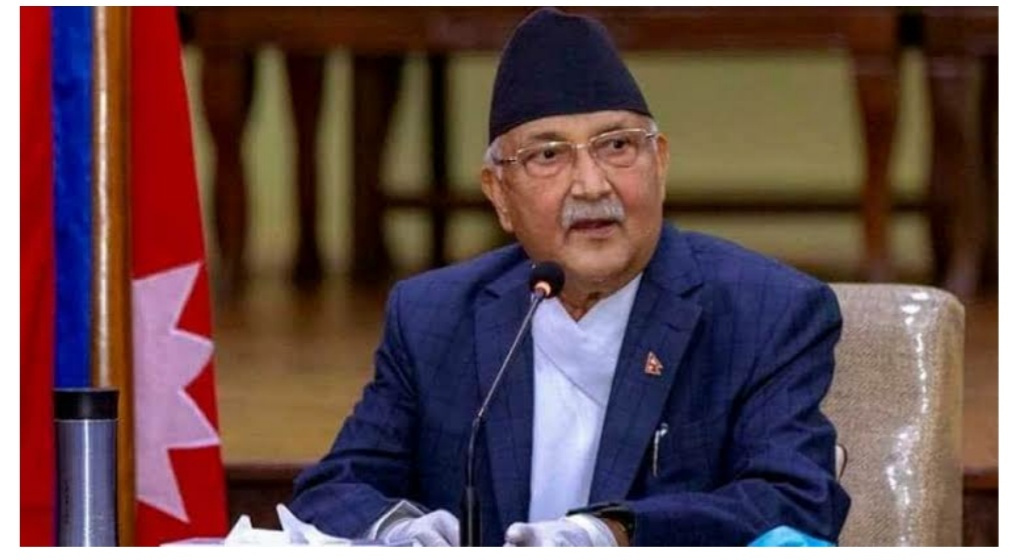
Nepal stood as the last Hindu monarchy until 2008, when it adopted the democratic system of governance, thus entering the modern world. Things should have transitioned smoothly but it doesn’t seem that ‘The Roof of the World’ is going to have a stable political future. The country is facing one of the worst political phases a nation-state could possibly imagine.
Prime Minister KP Sharma Oli was removed from the Nepal Communist Party by the Central Committee’s splinter faction on 16th January, in the midst of an extending political emergency post the disintegration of the Parliament. Back in December 2020, Prime Minister Oli suggested the disintegration of the House of Representatives, the lower house of the Parliament, a move instantly endorsed by President Bidhya Devi Bhandari. This called for fresh elections in the month of April and May of 2021, amid the political unrest in the country.

From that point onwards, the Nepal Communist Party is divided into two groups- one headed by Oli himself and the other driven by previous Prime Ministers Pushpa Kamal Dahal, also known as Prachanda and Madhav Kumar Nepal. The two sides are running separate projects in the country of similar standards to anticipate official acknowledgment from the Election Commission. While this is going on, the Prachanda-Nepal group has made a disciplinary move against Oli.
Oli was left facing a losing conflict in the party. He has announced that the ultimate political decision will hang on the April 30 and May 10 Election results in 2021, with him as the head of the overseer government. Finally, his destiny will be determined by the fomenting swarms that influence the situation and the Supreme Court. Additionally, there is a situation developing on the reclamation of Nepal as a Hindu Rashtra.
This move complicated relations between the break-away Socialist faction he leads and the other factions of the country. Later, Oli and his followers managed to lock the party office, thus bringing it under his influence. Despite that, he was unsuccessful in gaining a majority in the broken down Parliament, the Central Secretariat, the Standing Committee, and the Central Committee. Be that as it may, with the Parliament disintegrated and a President who favored him, Oli got the ability to run without being responsible to anyone.
The disintegration came hours before a Standing Committee meeting that was going to arrange an investigation into the defilement accusations leveled against Oli by Party co-administrator Pushpa Kamal Dahal Prachanda.
The disintegration of the House isn’t a new phenomenon in Nepal, yet this one is the main example after the enactment of the new Constitution in 2015 that ironically aims at protecting the country against such political upheavals. “The new constitution doesn’t envisage such a step without exploring formations of an alternative government,” said Dr. Bhimarjun Acharya, a significant legal advisor.

The Nepal Army has clarified that it will not involve itself in the progressing political turn of events. This implies the lack of support by the Army if Oli attempts to lead with their assistance to keep up peace and contain fights.
China has been a major component of Nepal’s domestic political turmoil since 2006. It has self-proclaimed itself as the mediator and is campaigning extensively, noticeably and from behind the curtains to forestall the split. China has additionally put resources into pivotal areas like Exchange and Investment, Energy, Tourism, and Post-Seismic Tremor Recreation, and is Nepal’s greatest FDI patron. It has expanded its presence in Nepal by propagating India as a benefactor of the 2006 political revolution.
On inspection, Nepal’s crisis is not out of the blue but rather a more expected turn of events that occurred because of the inability of the national leaders to uphold peace. Nevertheless, the government has to follow up with a perfect course of action in order to handle the national population who can fall into the wrong hands of the neighboring vulturous nations.
Written by- Abhay Majhi

